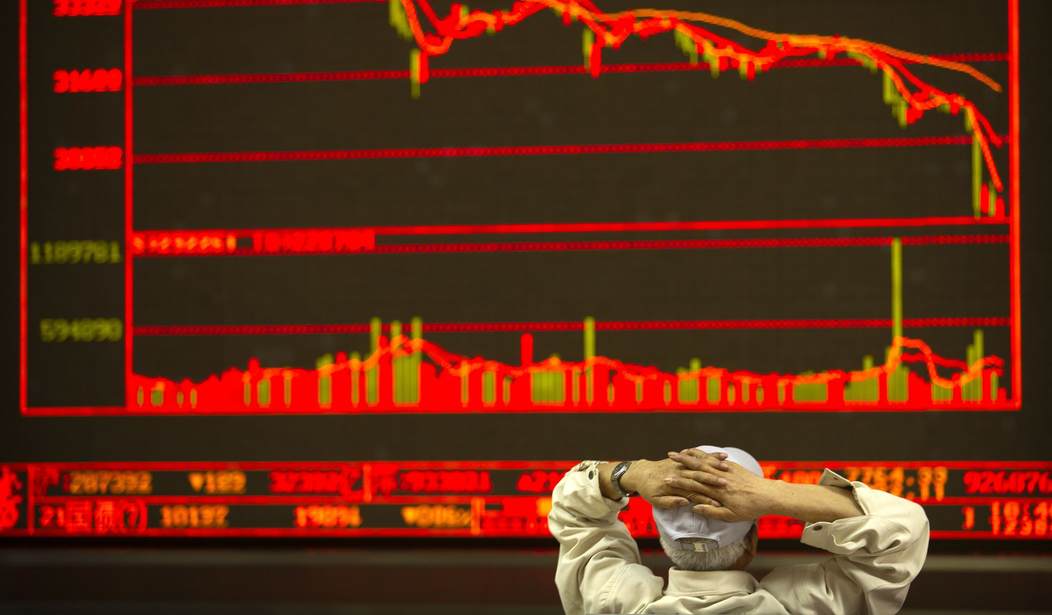FDI or Foreign Direct Investment in China hit a 30-year low last year.
China’s direct investment liabilities in its balance of payments stood at $33 billion last year, according to data from the State Administration of Foreign Exchange released Sunday. That measure of new foreign investment into the country — which records monetary flows connected to foreign-owned entities in China — was 82% lower than the 2022 level and the lowest since 1993...
The government’s efforts to get overseas companies to return after Covid are falling short, and more will be needed if Beijing is to succeed in its aims. The continuing weakness highlights how foreign companies are pulling money out of the country due to geopolitical tensions and higher interest rates elsewhere.
It's not just foreign companies investing less in Chinese markets. Individual Chinese investors are also pulling out after years of losses and sliding domestic stocks. Instead, some are now investing in funds that track foreign markets including the US. Even some "little pinks," the pro-communist Chinese who frequently defend the Chinese government online, are having second thoughts now that their investments are losing money.
Leo, who was born in Beijing in the mid-1980s, said he had grown up as a nationalistic “little pink.” The first crack in his confidence, he said, was in 2021 when the government went after internet companies. The second crack appeared when the government abruptly ended its “zero-Covid” policy in December 2022 without preparing the population with effective vaccines or medications. Then in late July, the markets and the private sector failed to respond to government measures to stimulate the economy.
Leo’s change is remarkable. He said local Beijing residents like him and the people with whom he had gone to high school were among the stoutest supporters of the Communist Party’s rule because they benefited from the city’s expansion and the country’s growth...
He said that he wanted the government to loosen its grip on private enterprise and disband Communist Party branches that had proliferated inside companies, and that he wanted the private sector to start to invest again. Until then, he will keep his money out of China’s markets.
And what investing advice would he give to his families and friends? “Run as fast as you can,” he said, “even at a loss.”
There was a lot of talk a few weeks ago about how the big New Years holiday would show China's economy could bounce back and replace investments in apartment construction with more routine middle class consumption. CNN reports that the New Years numbers were touted as good news but when you consider that this year the holiday had an extra day (8 days instead of the usual 7) and average that out, people are still spending an average of 6% less than pre-pandemic.
China has reported a record upsurge in travel and consumption during a longer-than-usual Lunar New Year holiday season, touting the gains as signs that the world’s second largest economy is regaining its footing thanks to the government’s supportive policies.
But according to CNN calculations based on official data, the average tourism-related spending per trip was below pre-pandemic levels, as consumer confidence remains weak amid deflationary pressure...
The ministry did not provide details of the numbers of trips or spending by day. However, CNN calculations based on official data suggest the consumption level fell short of pre-pandemic levels.
Finally, the fallout from the collapse of the property market isn't over yet. As I've described before, China has a shadow banking industry which includes trusts which invested people's money in the property developers when they were booming. Now some of these trusts are broke and investors are being offered a chance to recoup part of their money though, because this is China, it's not clear if the money is coming from the trust, the government or a bit of both.
Wang Jin felt sure that he could invest in Sichuan Trust, an institution that was part of one of what he describes as the “four pillars” of China’s financial system: banks, securities, insurance and trusts. Promised a return on his investment of 8.3%, he handed over 1.6m yuan (£178,000) in 2019. “The trust had a state licence, so we believed in its integrity,” Wang (not his real name) recalls.
Unluckily for him, in May 2020, the company said that it would be unable to repay 20bn yuan of investments. Protests ensued, with hundreds of middle-aged investors gathering outside the headquarters in Chengdu to demand their money back. By the end of the year, the local government had taken over the firm, which was reported to have a shortfall of more than 30bn yuan on its books, although the company said the sum was closer to 25bn.
Now, Wang is one of more than 8,000 investors who have been given until 5 March to accept a sliding scale repayment plan that would return 80% of capital to the smallest investors, while those who had invested more than 10m yuan would get back 40%. Investors are furious. The offer is “legalised robbery”, one of them says, in chat messages seen by the Observer.
Wang says he can accept losing money in the market but in this case he doesn't know for sure if politics played a role. The former top shareholder in the trust was arrested in 2021. That may have been part of a government effort to crack down on trust which started in 2018. In China where communist minders are embedded in every company, it's hard to know whether market forces or political forces are responsible for what is happening.








Join the conversation as a VIP Member